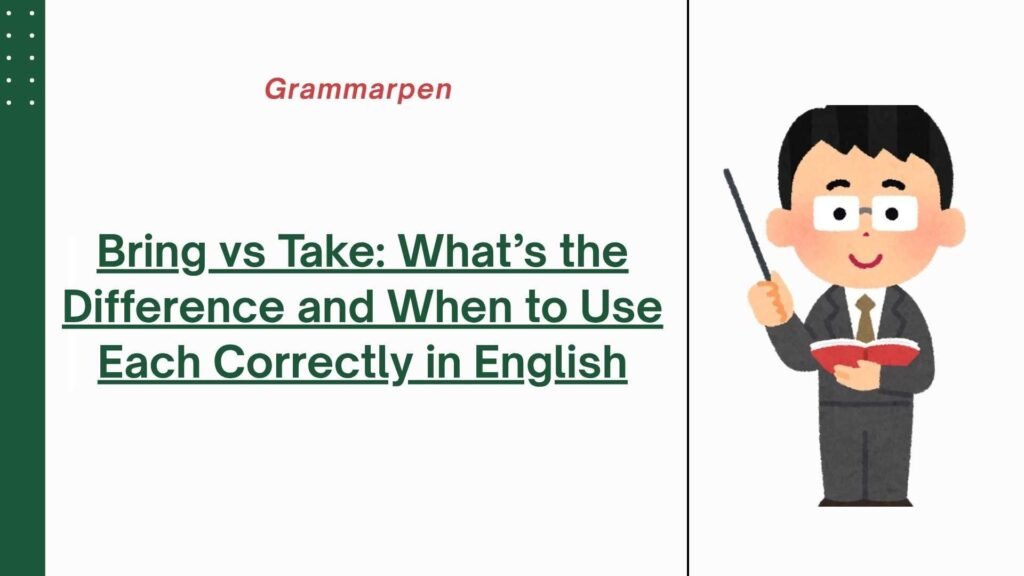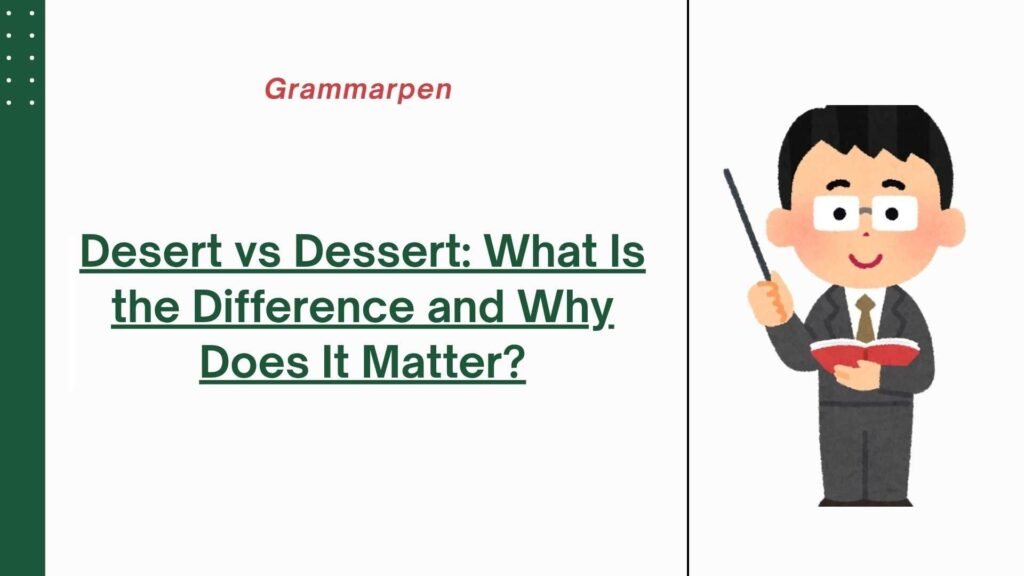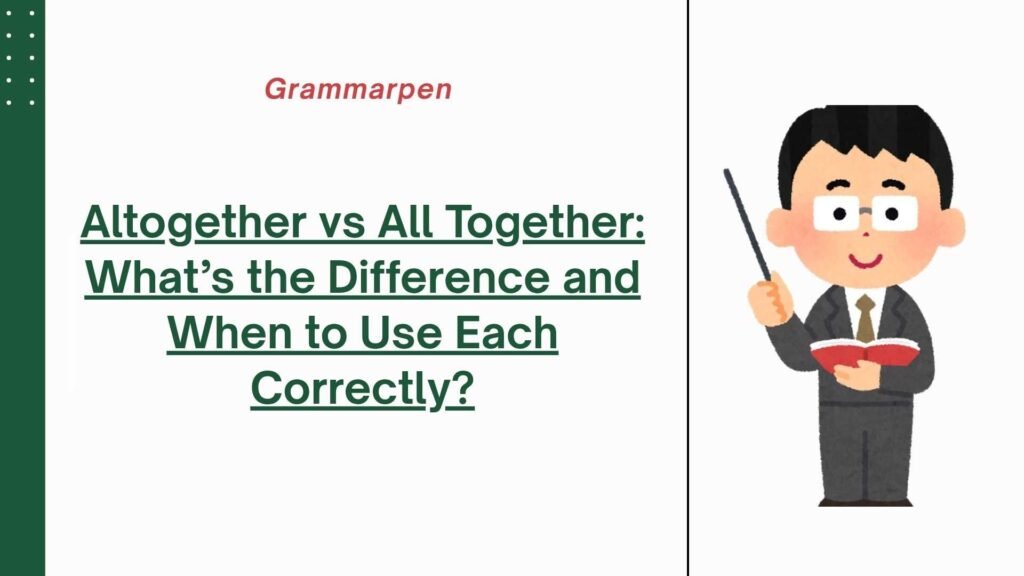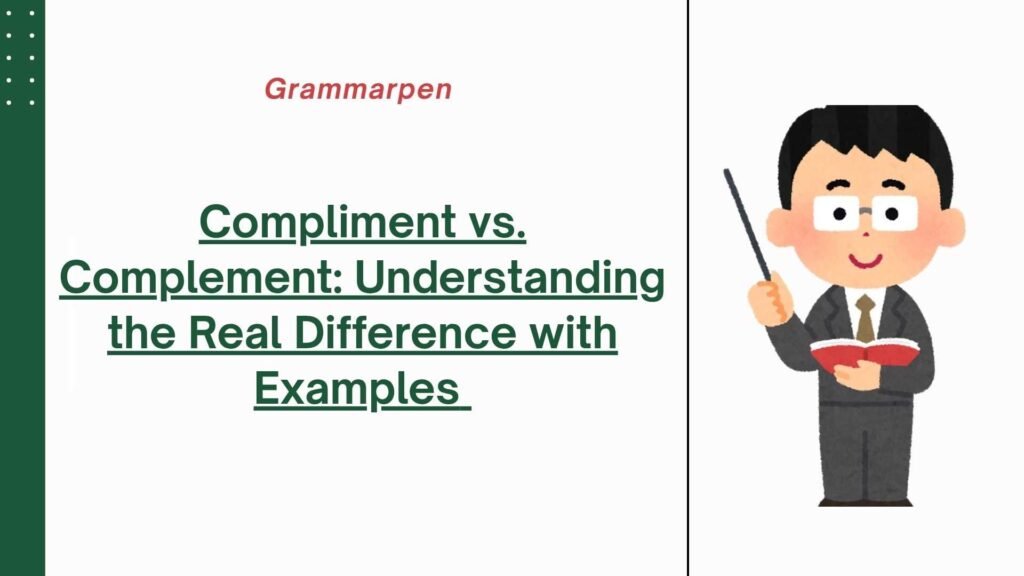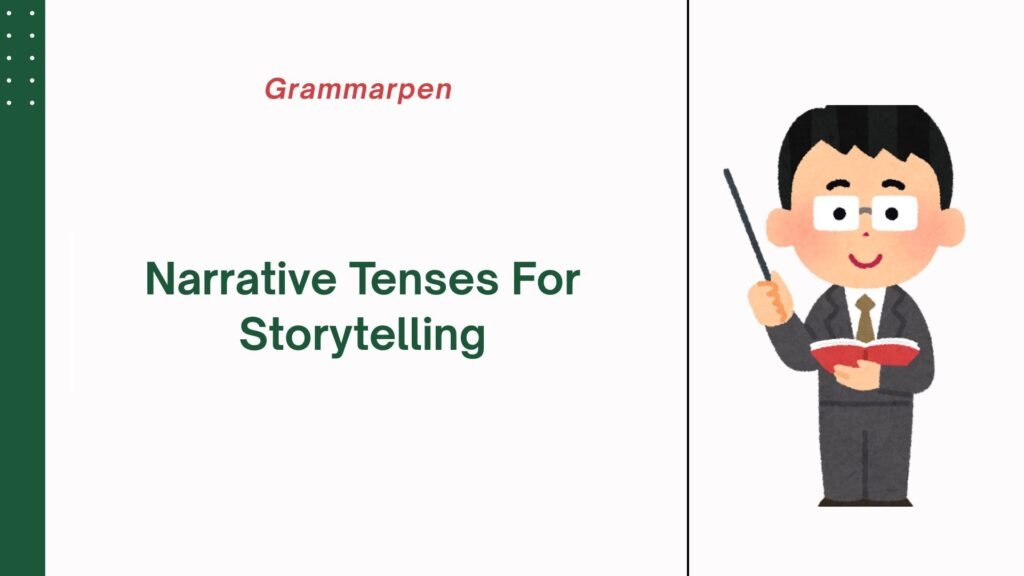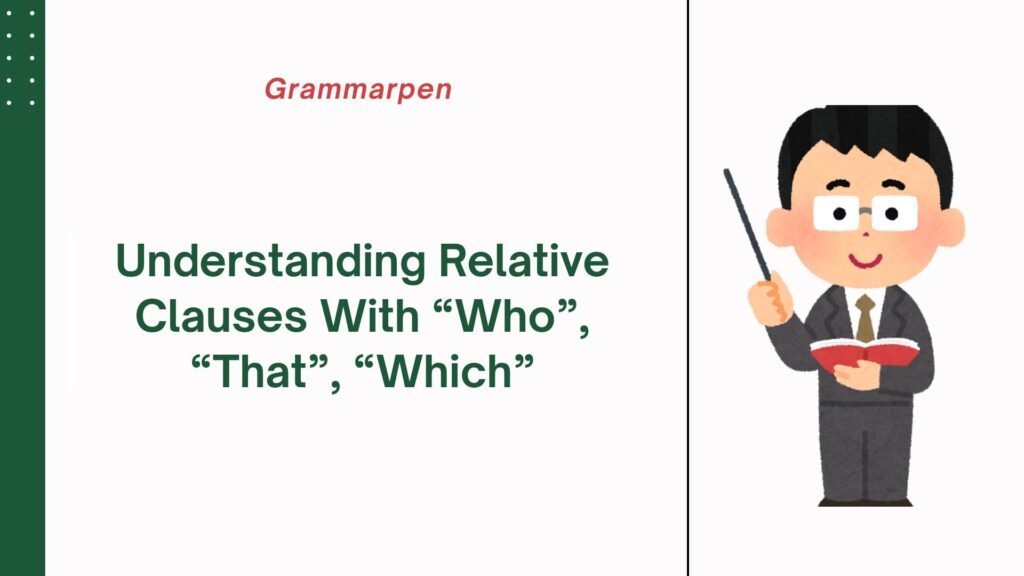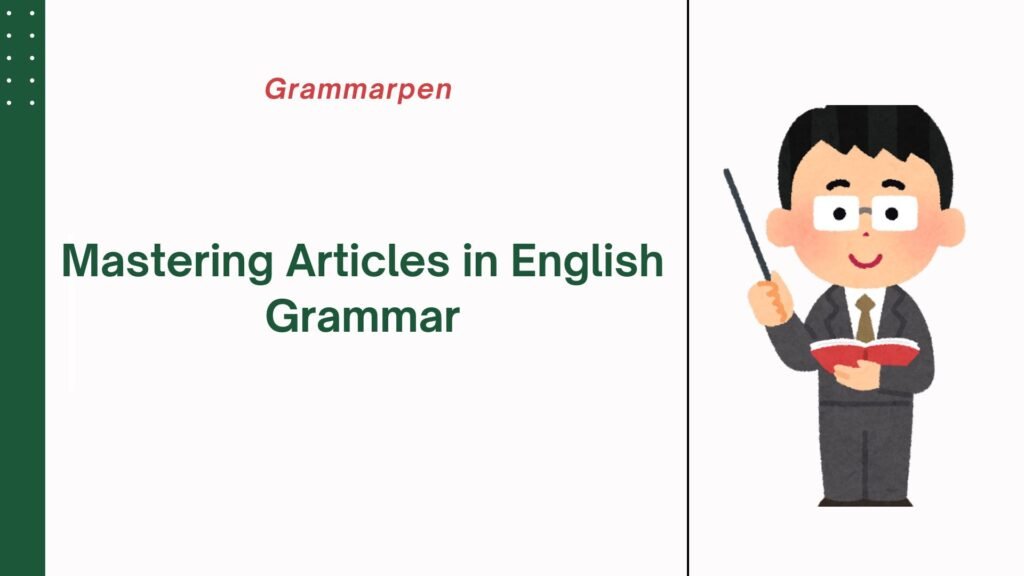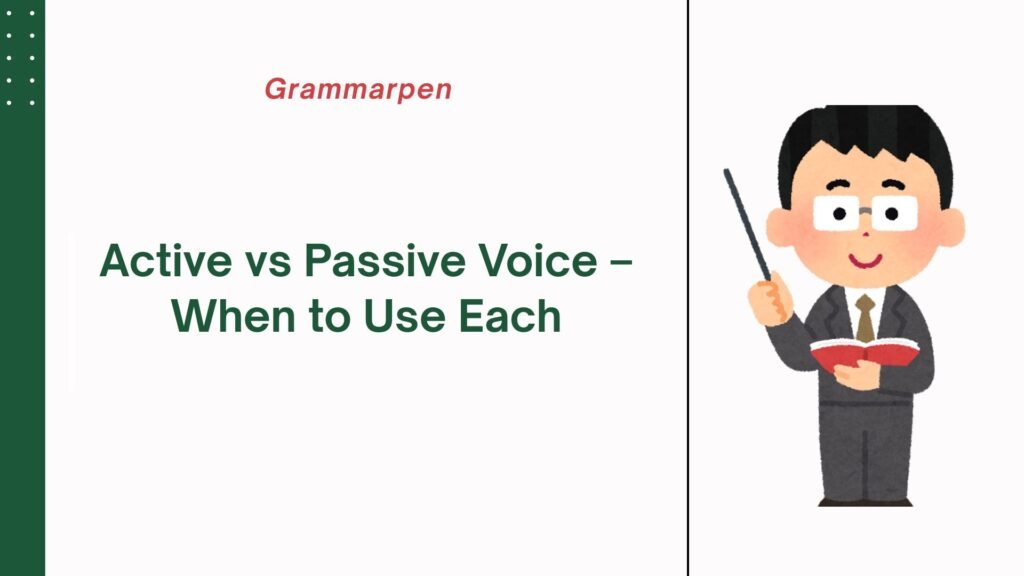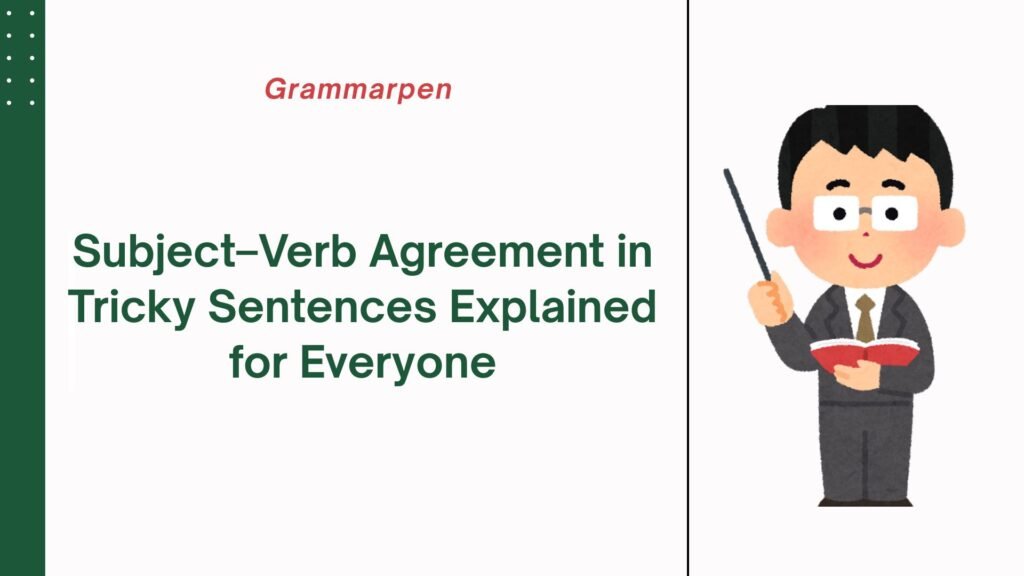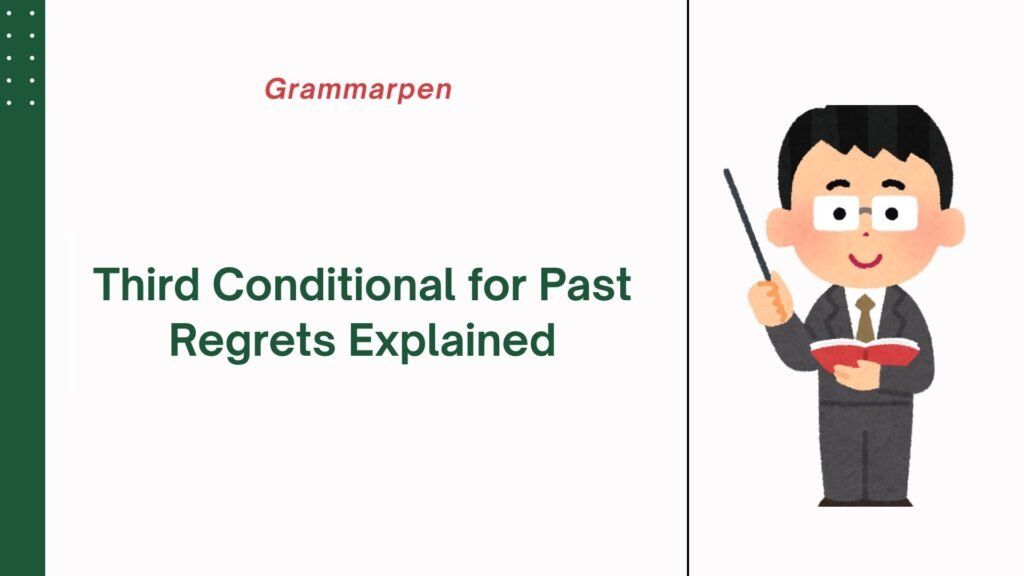Bring vs Take: What’s the Difference and When to Use Each Correctly in English
In everyday English, the words bring and take might seem interchangeable to many people. After all, both verbs deal with moving things from one place to another. But even though they are related in meaning, they are not the same. Using bring when you should use take, or vice versa, can change the clarity and…
Read more

